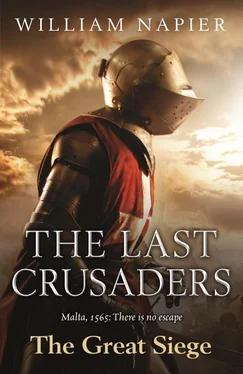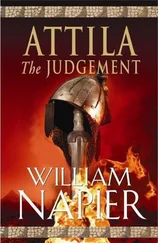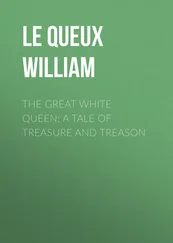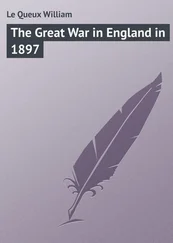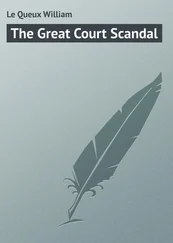William Napier - The Great Siege
Здесь есть возможность читать онлайн «William Napier - The Great Siege» весь текст электронной книги совершенно бесплатно (целиком полную версию без сокращений). В некоторых случаях можно слушать аудио, скачать через торрент в формате fb2 и присутствует краткое содержание. Жанр: Исторические приключения, на английском языке. Описание произведения, (предисловие) а так же отзывы посетителей доступны на портале библиотеки ЛибКат.
- Название:The Great Siege
- Автор:
- Жанр:
- Год:неизвестен
- ISBN:нет данных
- Рейтинг книги:5 / 5. Голосов: 1
-
Избранное:Добавить в избранное
- Отзывы:
-
Ваша оценка:
- 100
- 1
- 2
- 3
- 4
- 5
The Great Siege: краткое содержание, описание и аннотация
Предлагаем к чтению аннотацию, описание, краткое содержание или предисловие (зависит от того, что написал сам автор книги «The Great Siege»). Если вы не нашли необходимую информацию о книге — напишите в комментариях, мы постараемся отыскать её.
The Great Siege — читать онлайн бесплатно полную книгу (весь текст) целиком
Ниже представлен текст книги, разбитый по страницам. Система сохранения места последней прочитанной страницы, позволяет с удобством читать онлайн бесплатно книгу «The Great Siege», без необходимости каждый раз заново искать на чём Вы остановились. Поставьте закладку, и сможете в любой момент перейти на страницу, на которой закончили чтение.
Интервал:
Закладка:
The knights thought their hearts would break. And then on impulse one knight sank down on his knees at the side of the street, and bowed his head in all humility to the people passing by. This people with the hearts of lions. The knight was La Valette. Jean Parisot de la Valette, 48th Grand Master of the impeccably aristocratic Order of the Knights of St John.
Then one by one, all the knights did as he did. All down the street, the stony ground rang with the clank of poleyns and greaves as the noblest sons of European chivalry, hair matted, beards filthy, beribboned in bloody bandages, sank down and bowed before a troop of dust-covered peasantry. They closed their eyes and rested shaggy, blood-encrusted forelocks on their clasped fists, holding their swords before them like crosses set in the ground, like knights in midnight vigil before the Cross.
What an Island of Heroes they had fought for and died for. What a high honour it had been. Suleiman should see this, the Magnificent, the Lord of the World, Padishah of the Red Sea, the White and the Black. Then at last he might be humbled. For such a people as this could never be destroyed.
Later that night, a message came from La Valette. The relief force from Sicily, under Don García de Toledo, had landed on the north of the island at Mellieha Bay. They had not been able to sail earlier, because of bad weather.
Then La Valette gave a rare laugh.
11
It was just an ordinary backstreet house in Birgu that had been struck by one of the last Turkish cannonballs fired into the town. The house had a small courtyard where the family used to sit, old Mama and mother and father and their daughter and two boys. The boys slept in the tiny room up the stairs from the courtyard at the top of the house. But some days before, the daughter had looked at the other houses hit by cannonball, and had made her brothers change rooms with her. Her noisy, dirty, scrappy, irritating, beloved little brothers. They said they didn’t want to move, they liked their room, but she said they must, it was dangerous. They said but then she would be in danger and she said don’t argue, go and sleep in my room. Or we could all sleep in the cellar, they said, but she said that would not be decent as they well knew, for men and women did not sleep in the same room after a girl had become a woman. And besides, cellars collapsed and buried people alive. They wouldn’t like that. So the boys grumpily took up their blankets and their thin straw pallets and moved into her room and she into theirs.
Nicholas ran back to the Street of the Bakers, a surge of wild survivor’s joy in his young heart. It was over, and he lived. He and Hodge and Maddalena all still lived. Suddenly a future was possible again, after months when he thought he might die here. Images of the green hills of Shropshire flooded into his mind, long distant plans, confused desires, his sisters found and restored, their rightful estates … Hodge his companion on the hills once more, long fowling pieces over their shoulders, dogs at their heels. And a beautiful young wife, taken back to England with him. How she would complain of the snowbound winters! Suddenly it was all possible. He shivered with happiness.
When he came running pell-mell into the Street of the Bakers, the house of Franco Briffa was no longer there. Just a shattered waste of white stone and dust, a section of wall hanging free in the air above, suspended in shock.
A woman saw him and took his hand and led him to a small courtyard further down the street, and there was Franco Briffa and Maria, her head sunk on his chest, and old Mama, and Mateo and Tito sitting nearby on the ground looking wide-eyed, and beneath a white shroud a slender body covered from head to toe.
Nicholas cried out in every language that he knew, broken fragments of Spanish and Italian and Maltese and English, and he tore off the pure white shroud that covered her and saw what the cannonballs and the falling stones had done to her. Yet her face was untouched and as beautiful as ever in life, and he fell on her and kissed her, until at last gentle hands held him and stilled him and then helped him up.
Franco Briffa was speaking to him, and Maria also, but he could not hear their words. His ears screamed. But then he tried to make himself hear them. Was it not their grief too? He had loved her more than he would ever love another, but her parents too had loved and lost her, borne her, nursed her, raised her. For four months she had been a flame in his heart, a painful beautiful burning flame, but for fourteen years she had been their jewel, and they had lost her. He gulped down his desperate sobs and strained to hear their words.
‘You would have been my son,’ said Franco Briffa, and held him to his breast. Maria wept beside him and stroked his hair as if she was truly his mother.
‘You would have been our son,’ she said. ‘We would have been proud of you as though you were true-born Maltese, and you would have been our son. For she would have had no other but you.’
Nicholas and Hodge sat out on the headland beyond Gallows Point and watched the sun go down over the island. Nicholas sat with his arms around his knees and his head bowed as if he was praying, but he was not praying. Hodge sat near to him, squinting, pulling a bit of dried grass. It had all been for nothing. The chivalry and heroism and the unimaginable hardship. What was it all about? A few barren miles of island and a dead girl’s grave.
Now the world was all before them, and they had nothing but their lives, their limbs and their spirits, wounded deep but not broken. It was more than many. What was next for them? Return to England? For there was business still to be done in Shropshire, and much to be set right there. Or Cadiz? Venice, and the hope of fortune? Or eastwards, to unimaginable adventures? Perhaps they would become wanderers of this Inland Sea, and of the blazing, war-torn borderland between two worlds, the Cross and the Crescent. Nicholas knew he had too great a restlessness, too great a sorrow, for any peace. Would they lose their honour and sink to mere mercenaries, going from war to bloody war, swords for hire, men who have looked on so much horror it has left their souls emptied out of everything once human?
‘I’m sorry for it, though,’ Hodge suddenly blurted out. ‘The girl and everything.’
Without Hodge, he might have chosen to die here, leave his bones here. But he would go on. Hodge made it bearable.
‘You have a stout heart and a noble soul, Hodge. For a peasant.’
‘That I have, Master Nicholas, that I have.’
‘I’m not your master.’
‘Just as you say, master.’
The sun sank slowly down.
‘I’m glad you’re here, Hodge.’
‘I’m not. Don’t know why I’m here, any more’n you do.’
Nicholas thought he had known. To fight for her. Afterwards to be with her. Just to be with her, just a few years. The tears came.
‘Come on then,’ said Hodge. ‘They’re pouring the wine free in all the taverns. We should go back to town and get drunk as badgers. Remember how they used to get drunk at night, down in the cider-apple orchard?’
Long ago, when they were boys. Nicholas raised his head, crying with a smile.
EPILOGUE
Jean Parisot de la Valette was offered a Cardinalate in Rome, but he smiled and gracefully declined. ‘For the next few years,’ he said, ‘I must needs be a builder.’
Money now poured into the coffers of the Order, from those European princes who had been so slow to send help while the battle raged. Their small consciences pricked, they delved into their treasuries and sent gold and silver, food and supplies, fresh livestock, seedcorn, and teams of stonemasons and engineers.
Читать дальшеИнтервал:
Закладка:
Похожие книги на «The Great Siege»
Представляем Вашему вниманию похожие книги на «The Great Siege» списком для выбора. Мы отобрали схожую по названию и смыслу литературу в надежде предоставить читателям больше вариантов отыскать новые, интересные, ещё непрочитанные произведения.
Обсуждение, отзывы о книге «The Great Siege» и просто собственные мнения читателей. Оставьте ваши комментарии, напишите, что Вы думаете о произведении, его смысле или главных героях. Укажите что конкретно понравилось, а что нет, и почему Вы так считаете.
